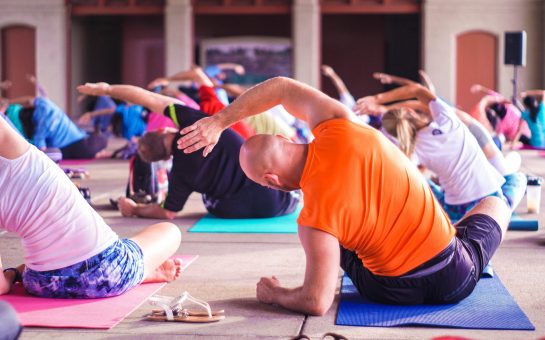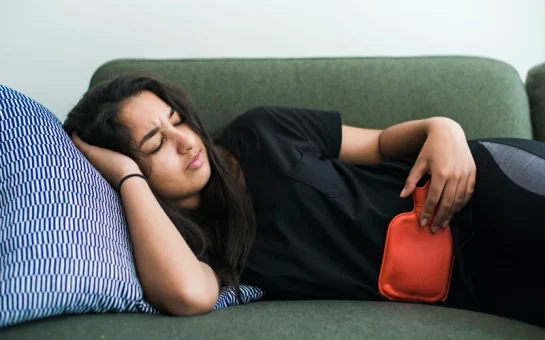For the third time in less a year, lockdown measures have caused the closure of gyms and leisure facilities throughout the UK, despite calls from those that use the facilities to remain open.
With frustrations boiling over and a petition signed by 140,000 people, calls for the reopening of gyms as an essential service fell on deaf ears when debated in Parliament last summer.
SWL spoke to three gym owners to gain their perspective on how the enforced measures had affected them.
The Warehouse Gym, Leicester
Owner, Lynton Dell, 35, adhered to government rules to close all facilities during the first lockdown, but attempted to remain open during November’s circuit-breaker after one of his members committed suicide.
He said: “After hearing of the suicide of one of my members, I did a post online asking if anyone else was struggling?
“In response, I had around 15 people, mainly men, telling me they had attempted suicide either by hanging or drowning with one having been caught in the act by his daughter.”
In response to the suicide, Dell said the decision to stay open against government rules was never financial.
Instead, he used his social media pages to invite people struggling with mental health to use his facilities for free.
He said: “The idea was to stay open as long as possible. I was happy to turn my tills off and turn the music off so that nothing was operating as a business. I wanted to provide a place for people to come and train.”
Dell was met with resistance from the local authorities, starting with two emails from the council asking him to close due to a breach of health and safety laws.
He remained open for around six hours before police entered the facility with a warrant.
Shortly afterwards, Dell was forced to close his gym.
Regardless of his failed attempt to remain open, The Warehouse Gym received widespread support across social media platforms for its stance.
Two more members have taken their lives since November’s lockdown and Dell responded by launching a mental health initiative.
He said: “The waiting list for mental health therapy can take up to 16 months, that isn’t okay if you’re struggling.
“We’ve set up a mental health charity called the Wellbeing Warehouse, where somebody can go onto the website and within five clicks, they can see a therapist and receive four to six weeks of therapy.
“It’s free and paid for by donation to help people whilst they wait for longer-term therapy.”
Barch Richmond
Barch Richmond received praise from its members for finding alternative ways for them to remain active in the face of physical and mental wellbeing challenges, by running online classes.
Owner Will Taylor, 29, admitted that he has received an abundance of letters, emails and gifts from people saying thank you.
He said: “Members would say to me that if it wasn’t for you doing these online classes through the lockdown, we don’t know how we’d cope.”
Taylor took heed of the feedback and has now created a free membership for NHS employees.
He added: “We’ve got people doing online yoga amongst other classes and the feedback is amazing. I did not realise how much it would help people. It’s been awesome.”
Taylor had a laid-back approach to the challenges his business faced, as he accepted it was a situation he could not change.
After the resumption of indoor training last July, Taylor incurred extra costs to be COVID-secure, with sanitising stations, cleaning products and lower occupancy all adding to his overheads.
But when faced with the second indoor closure he opted to relocate his classes outdoors in a move that proved to be productive.
He explained: “I coach rugby for London Welsh, and they let us use the field. When we did that, we had an influx of new members because people would walk by and think what’s this?”
Premier Gym, Coalville
Premier Gym took measures to ensure its members were provided with a niche outdoor service, so they were able to train outdoors whilst indoor exercise was banned.
Owner Rob Thurston, 49, was supportive of the Government’s decision to close gyms, and ensured that his gym has met all safety requirements including the use of Track and Trace.
He said: “Last summer, we fenced off part of the car park and made an outdoor gym space with our main indoor equipment.
“We had one-hour timeslots for a maximum of ten people, which will also become an enhanced permanent feature throughout this spring and summer. It will be a cool outdoor training space.”
Track and Trace data published last November by Public Health England initially suggested that gyms were not a hotbed for COVID-19 transmission unlike supermarkets and pubs and bars.
This created a focal point for many gym owners to put forward their argument for gyms to remain open, but after visiting several gyms, Thurston does not believe the data is a realistic reflection of gym transmissions.
He said: “Despite what UK Active were saying about the low prevalence of COVID-19 cases, hardly any of those were doing Track and Trace. Every gym I visited, there very little cleaning going on.
“I signed in as a guest at one gym and nobody took my details. I literally wrote down my name, paid five quid and trained. I didn’t clean any equipment because there was 60 people in there and one spray bottle.”
Despite the frustrations, some gym owners are readying themselves for a grand reopening, that they anticipate happening in March or April with outdoor exercise being phased in first.
Whilst the adaptations and willingness to break down barriers to exercise have shown strength and unity within the industry, the challenges surrounding business recovery are far from over.
Many gyms will not be able to open their doors again, but for those that are fortunate enough to return, the long and ambiguous road back to normality is only just beginning.




